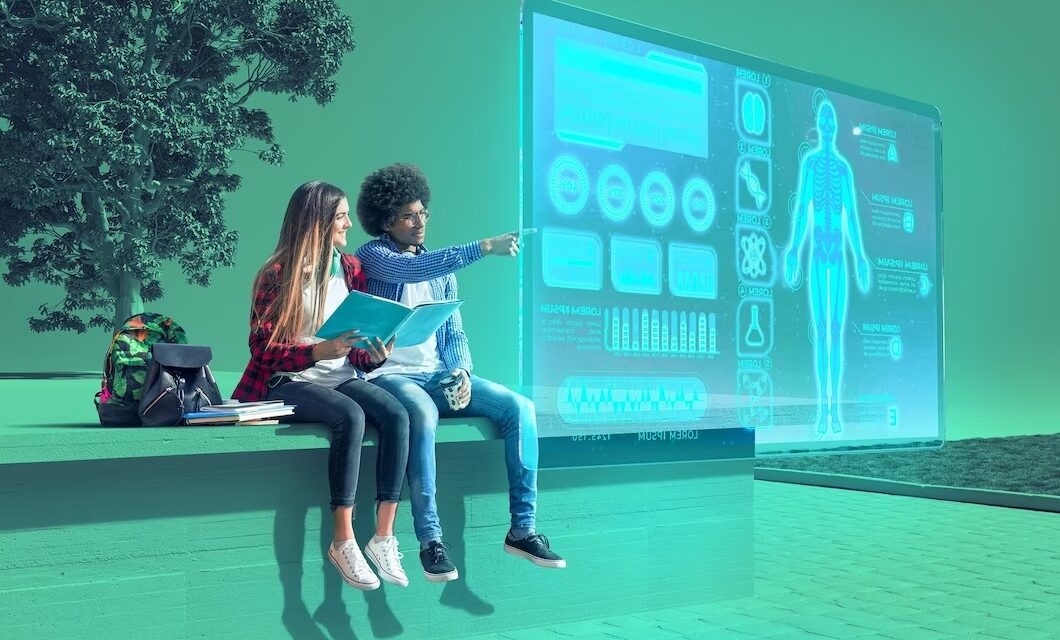The way humans engage with machines and the digital world has undergone a dramatic change thanks to ChatGPT, a ground-breaking AI language model developed by OpenAI. Let’s cover the future Trends of ChatGPT.
ChatGPT has experienced constant development since its start, polishing its powers and developing into one of the most sophisticated language models now in use.
Looking ahead, it becomes necessary to investigate the exciting possibilities that the ChatGPT generation holds.
This article will examine ChatGPT’s probable future trends in-depth, looking at its developments, capabilities, and potential substantial effects on a range of sectors and society at large.
We’ll explore the intriguing ways that ChatGPT can change how we engage with AI in the future and the state of human-computer communication as we go into the world of possibility.
Enhanced Contextual Understanding
One of the primary focuses in the next generation of ChatGPT is to improve its contextual understanding. Currently, ChatGPT operates primarily on a one-turn basis, responding to queries without fully retaining the context of previous interactions.
However, future iterations are expected to develop a more persistent memory and a deeper comprehension of the conversation’s context. This advancement will allow ChatGPT to maintain coherent dialogue, enabling it to provide more accurate and relevant responses over extended interactions.
Enhanced contextual understanding will be particularly beneficial for customer service applications. Imagine a future where ChatGPT can remember a user’s previous interactions, preferences, and history, making each conversation feel more personalized and natural.
This level of context awareness will not only enhance user satisfaction but also reduce frustration and repetition in customer support interactions, leading to more efficient problem-solving and happier customers.
Top 10 Easy YouTube Ideas for Teens
Multimodal Capabilities
In the next generation, ChatGPT is expected to break new ground by incorporating multimodal capabilities. Currently, ChatGPT primarily relies on textual data to generate responses.
However, with advancements in AI research and hardware capabilities, future versions may be able to process and understand a wide range of data types, including images, audio, and videos.
Multimodal ChatGPT will lead to more diverse and interactive conversational experiences. Users will be able to communicate with the model using not just text but also images and voice commands.
For instance, a user could describe a problem using both text and images, and ChatGPT would be able to understand the combined information to provide a more accurate solution or response.
This development would open up new possibilities for creative expression, assistive technologies, and interactive storytelling.
Continual Learning & Adaptation
The next generation of ChatGPT is likely to adopt a more dynamic and flexible learning approach. Currently, AI models are trained on vast datasets and then deployed in a static state.
Future iterations may embrace continual learning techniques, allowing ChatGPT to adapt and improve its responses based on real-world interactions and feedback.
By implementing continual learning, ChatGPT will become more adaptable to the ever-changing language patterns and user preferences. It will be able to keep up with the evolving trends, idioms, and nuances in language usage.
Additionally, continual learning will enable the model to refine its responses over time, reducing biases and inaccuracies that may emerge during the initial training phase.
Zero Investment Business Ideas for Students
Ethical Considerations & Bias Mitigation
As AI language models like ChatGPT become more prevalent in our daily lives, addressing ethical concerns and mitigating bias becomes paramount.
The next generation of ChatGPT will focus on integrating safeguards to ensure responsible and unbiased use.
OpenAI has already made significant strides in this area by implementing guidelines and restrictions to prevent the model from generating harmful or malicious content.
Future trends in ChatGPT will continue to prioritize ethical considerations. It may incorporate features that allow users to customize the behaviour and values of the model within reasonable limits.
Additionally, advancements in natural language processing will aid in detecting and rectifying biased outputs, ensuring that the model remains fair and inclusive.
Domain-Specific Specialization
To further enhance ChatGPT’s utility in various industries and professional domains, the next generation is likely to witness the emergence of domain-specific specializations.
Currently, ChatGPT is a general-purpose language model, capable of answering a wide range of questions and engaging in diverse conversations.
However, future versions may be designed to excel in specific areas, such as healthcare, law, finance, or technology.
Domain-specific ChatGPT models will offer more accurate and reliable responses tailored to the particular field, making them invaluable tools for professionals seeking specialized information.
For example, a medical ChatGPT could assist healthcare practitioners in diagnosing rare conditions or recommending personalized treatment plans based on the latest research and patient data.
Increased Customization & Personalization
In the next generation of ChatGPT, we can expect a heightened focus on customization and personalization. As AI models become more integrated into our lives, users will likely seek personalized interactions that align with their unique preferences and needs.
Future iterations of ChatGPT may offer options for users to customize the model’s behaviour, tone, and even its knowledge base to suit their requirements.
This level of customization could lead to more personalized AI assistants that cater to specific user interests, preferences, and goals.
Users might be able to define the personality of ChatGPT, making it more like a friendly companion that understands and relates to them on a deeper level.
As a result, interactions with ChatGPT will feel more human-like, leading to stronger user engagement and a more satisfying user experience.
The Ultimate Guide to Using ChatGPT for SEO Optimization
Enhanced Emotional Intelligence
Emotional intelligence is an essential aspect of human communication, and future iterations of ChatGPT are likely to incorporate enhanced emotional understanding and expression. By analyzing text and contextual cues, ChatGPT could detect and respond to the emotional state of users.
This capability would enable ChatGPT to provide more empathetic and supportive interactions. Making it a valuable companion for individuals seeking emotional support or a friendly conversational partner.
In therapeutic applications, ChatGPT’s emotional intelligence could prove particularly valuable. It might assist in mental health support, offering a non-judgmental space for users to express their feelings and emotions.
Additionally, emotional intelligence could enhance the efficacy of AI-driven virtual therapists, helping them respond to users with compassion and sensitivity.
Integration with Physical Devices & Robotics
Looking forward, ChatGPT is likely to extend beyond its current form as a text-based interface. And integrate with physical devices and robotics. Future versions of ChatGPT may power AI-driven robots, smart home systems, and interactive IoT devices.
This integration would enable users to interact with technology in more intuitive and natural ways.
Imagine a future where ChatGPT is embedded in a household robot, which can assist with daily chores, and answer questions. And even engage in playful conversations with family members.
The combination of natural language processing and robotic capabilities would lead to AI systems that are not only smart but also physically interactive.
Top 10 Jobs for 12-Year-Olds That Pay
Conclusion
The future trends of ChatGPT are undoubtedly promising, with advancements expected in contextual understanding. And multimodal capabilities, continual learning, ethical considerations, and domain-specific specialization.
As these developments take shape, ChatGPT will become an even more integral part of our daily lives. Transforming the way we communicate, seek information, and interact with AI systems.
However, as the capabilities of ChatGPT expand, it is crucial to remain vigilant about ethical concerns, and privacy. And the responsible use of AI technology. With careful and thoughtful implementation, the next generation of ChatGPT has the potential to revolutionize industries. Improve user experiences and unlock new possibilities in human-machine interactions.










